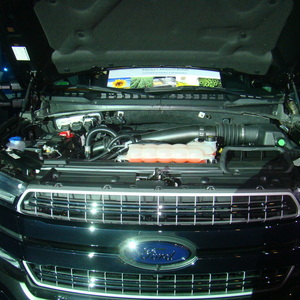Biodiesel can help reduce injector deposit formation

Photo: Ron Kotrba, Biodiesel Magazine
March 15, 2018
BY Ron Kotrba
Modern diesel engines utilize high pressure common rail fuel systems whose small injector gaps are highly sensitive to deposits. New research from the University of Rostock in Germany has shown that biodiesel use can minimize deposit formation in common rail injectors.
“Deposit formation processes could be simulated and factors influencing the formation of deposits could be identified,” stated Germany’s biodiesel quality management association, AGQM, one of the supporting organizations of the research. “The resulting measures have been examined for their effectiveness in this project.”
Advertisement
The use of aromatic-free fuels such as biodiesel and renewable diesel can reduce the deposit layer thicknesses, the research shows, with thickness decreasing as biodiesel content increases.
“The studies also showed that the formation of soaps is particularly critical and should therefore be avoided,” AGQM stated. “The standard, compliant biodiesel used in the project did not produce any soap-like coverings.”
Advertisement
The results of these tests not only prove the suitability of biodiesel in modern diesel engines, but they also appear to demonstrate biodiesel’s superior and beneficial fuel characteristics compared to fossil diesel.
The project was financed by Fachvereinigung Verbrennungskraftmaschinen (FVV e.V.) and the Agency for Renewable Resources (FNR e.V.), and it was supported and accompanied by AGQM and others.
Related Stories
As the demand for fleet decarbonization continues to intensify, Optimus Technologies on April 22 announced the production launch of its latest Vector System, a fuel system technology that enables heavy-duty engines to operate on B100.
Mammoet on April 23 announced that it will be implementing HVO fuel across the Netherlands, U.K. and Canada. The investment in HVO was driven by higher demand from lower carbon solutions from the company’s customers.
Heritage Aviation, along with Avfuel Corp.—a leading independent supplier of aviation fuel and services—is proud to announce the introduction of sustainable aviation fuel (SAF) to Patrick Leahy Burlington International Airport (KBTV).
Metro Ports on April 8 announced significant environmental milestone in its voluntary efforts to reduce greenhouse gas emissions. By switching to renewable diesel, the organization reduced its carbon emissions by 85%.
The Michigan Advanced Biofuels Coalition and Green Marine are partnering to accelerating adoption of sustainable biofuels to improve air quality and reduce GHG emissions in Michigan and across the Great Lakes and St. Lawrence Seaway.
Upcoming Events










